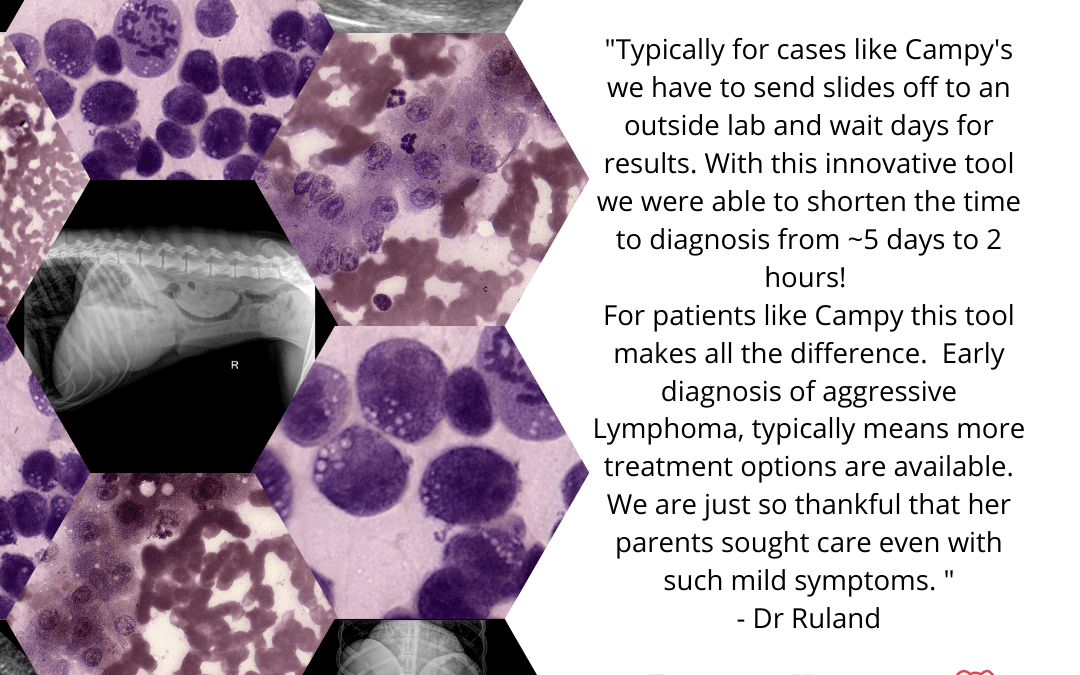Campy is a two-year-old female mixed breed dog who was presented to Emergency Veterinary Hospital with a two-day history of lethargy and not wanting to eat. No vomiting or any other symptoms were noted. Her symptoms were mild, and her vital signs were normal aside from a mildly elevated temperature, but at EVH, we know that the severity of symptoms does not always reflect the seriousness of the condition. And it is a good thing that Campy has astute parents who knew to seek care for these mild symptoms.
Radiographs of her abdomen revealed an enlarged liver, and further evaluation by ultrasound showed that Campy had evidence of cancer in her liver. We performed fine-needle aspirates of her liver. In this procedure, we sterilize the skin over the liver and insert sterile needles into the tissue using ultrasound guidance. Samples of cells are obtained and then spread onto a microscope slide to be evaluated. The slides were stained and then inserted into our new ScopioVet machine. This amazing machine gives us HD microscopic pictures of the slides, which allows us to digitally scan and evaluate those cells. Then the images are uploaded to a worldwide network of pathologists who review the images and can get us an answer in roughly one hour!
This process of preparing slides and then sending them to outside laboratories used to take upwards of five days for us to get results, wasting valuable time when a patient could be receiving treatment. The rapid turnaround and interactive interface of ScopioVet allows us to not only get an answer quickly but also converse with the pathologists, so if adjustments in the slides need to be made, we can do that in real-time. Previously, you might send slides out and then hear back five days later that the slide quality wasn’t good and you have to send more slides. Eeks! Again, this is wasting valuable time for those patients. ScopioVet has definitely revolutionized our abilities to diagnose our patients in this regard. For Campy, ScopioVet’s fast turnaround was crucial in getting the care she needed.
Unfortunately, the slides confirmed that Campy has High-Grade Large Cell Lymphoma, which is an aggressive, rapidly moving cancer in dogs. We were able to obtain a diagnosis and have those crucial conversations with her parents to help guide them through their options. Campy was then able to get into an oncologist within a few days and start chemotherapy immediately, which will give her the best chance of beating this cancer. We are rooting for you, Campy! Kick cancer’s rear end!


